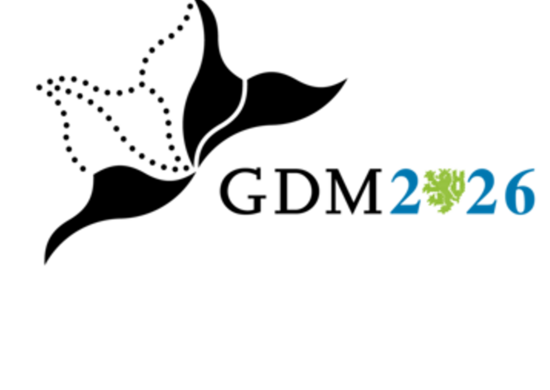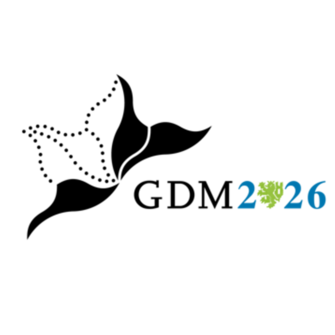

The working group Didactics and History of Mathematics at the university of Wuppertal cordially invites you to the 59th annual conference of the Society for Didactics of Mathematics.
The main conference will take place from 02.03. to 06.03.2026. Traditionally, the ErLe Day with programme items tailored for teachers and educators will take place on 03.03.2026. On the Young Talent Day from 01.03. to 02.03.2026, the Young Talent Representation will put together a comprehensive programme.
Read moreWe conduct empirical research by observing or initiating mathematical learning situations in schools, videographing them, and analysing them within a theoretical framework.
- Link: Research on Digitalisation
The App Database Maths offers a comprehensive overview of digital learning apps for mathematics education – from pre-school to upper secondary level. Given the wide range of available apps, the database offers guidance and helps teachers, learners, and parents quickly find suitable tools for specific learning needs.
Link: https: //mathematik-didaktik.uni-wuppertal.de/app-datenbank/
The joint project DigiMal.nrw aims to enhance the quality of core courses in the mathematics teacher training program (focusing on primary education/basic mathematics education) through digitally supported measures, thereby effectively broadening students' access to the subject and the didactics of mathematics. The focus is on the development and testing of digital learning opportunities for mathematics didactics courses as part of teacher training.
Link: DigiMal.nrw
A new mathematics didactics project has been launched under the leadership of Dr Sarah Beumann, with Ralf Benölken and Dirk Weber among those involved. In this project, Dr Beumann and Mr Weber are dedicated to the identification and individual support of mathematically gifted learners with barriers in the learning process.
Link: gift(2e)d
The Interactive Learning Elements for Mathematics (H5P elements) allow students to engage in interactive, digitally based learning and to strengthen their subject-specific and mathematics didactics competencies individually. The elements are developed collaboratively by students and lecturers in mathematics education with a focus on primary education.
Link: https://virtuelles-klassenzimmer-mathematik.uni-wuppertal.de/h5p-viewer/h5p
The central aim of the project is to increase the coherence of the content of university teacher training. The structures of teacher training will be optimised, university-wide communication about teacher training will be improved, networking with the second phase of teacher training will be intensified and the quality of the curricula and individual courses will be improved - with a view to the profession. In addition, interdisciplinary research into teacher training will be strengthened and promoted.
Link: KoLBi - Coherencein teachertraining
The federal and state governments jointly support particularly high-achieving pupils. In this way, bright minds are discovered more quickly.
Link: LemaS
The German Centre for Mathematics Teacher Training (DZLM) project "Catching up in Maths After Corona" (MaCo) aims to improve the mathematical understanding and basic skills of children and young people at primary and lower secondary level who are particularly affected by learning deficits. To this end, further training courses as well as support and teaching materials are offered for teachers, support staff and non-specialist teachers. In addition, multipliers are provided with materials for organising their own training courses.
Link: MaCo - Catching up in Maths After Corona
MaKosi 2.0 - Securing mathematical competences
MaReI - Maths teachers and their resilience towards inclusion
MathePrisma is an interactive multimedia project of the Faculty 4 / Mathematics of the University of Wuppertal.
Link: MathsPrisma
"Multilingualism as a Resource for the Learning of Mathematics" is a cross-university research group. The research group Fetzer and the research group Söbbeke, both BUW, research, discuss and publish together with the research group Schreiber of the Justus Liebig University Giessen.
Link: MaRLen - Multilingualism as a Resource for the Learning of Mathematics
Link: MathEx - Mathematical experimentation in teaching contexts
A maths teaching-learning lab in the context of mobile learning
Link: MATHletics
An enrichment project to promote mathematically gifted pupils in the 5th/6th grade
Link: MIKADU - Mathematically interested children at the University of Wuppertal
The project TabU - Tablets in Classrooms investigates the sociomedial organisation of instructional knowledge production during phases of group work.
Extracurricular enrichment project for children interested in maths
Link: THINK! - Meeting of mathematically interested children
UMWEG is a cooperation project to support the development of research projects by female employees from the working groups of Prof Dr Elke Söbbeke (University of Wuppertal) and Prof Dr Heinz Steinbring (University of Duisburg-Essen).
Link: UMWEG - Investigations into maths learning (in primary school) - Wuppertal Essen Group
The Virtual Maths Classroom (VKZM) is a 3D virtual environment featuring teaching and learning scenarios that are prototypical for primary mathematics education. Students can enter the VKZM as avatars, take on the role of the teacher, and interact with AI-controlled pupil avatars in virtual classroom situations.
Link: https://virtuelles-klassenzimmer-mathematik.uni-wuppertal.de/
The course is aimed at doctoral students who are working on a dissertation in the didactics of mathematics and are aiming for the academic degree of Dr paed. Participants will have the opportunity to present interim results of their work, and papers from mathematics didactics research that are of interest to the students in the advanced seminar will also be discussed.
Read moreCurrent research topics from the history of mathematics and science are discussed in the advanced seminar. Dates: Thursdays, 10.15-11.45 a.m., Room: F.12.11